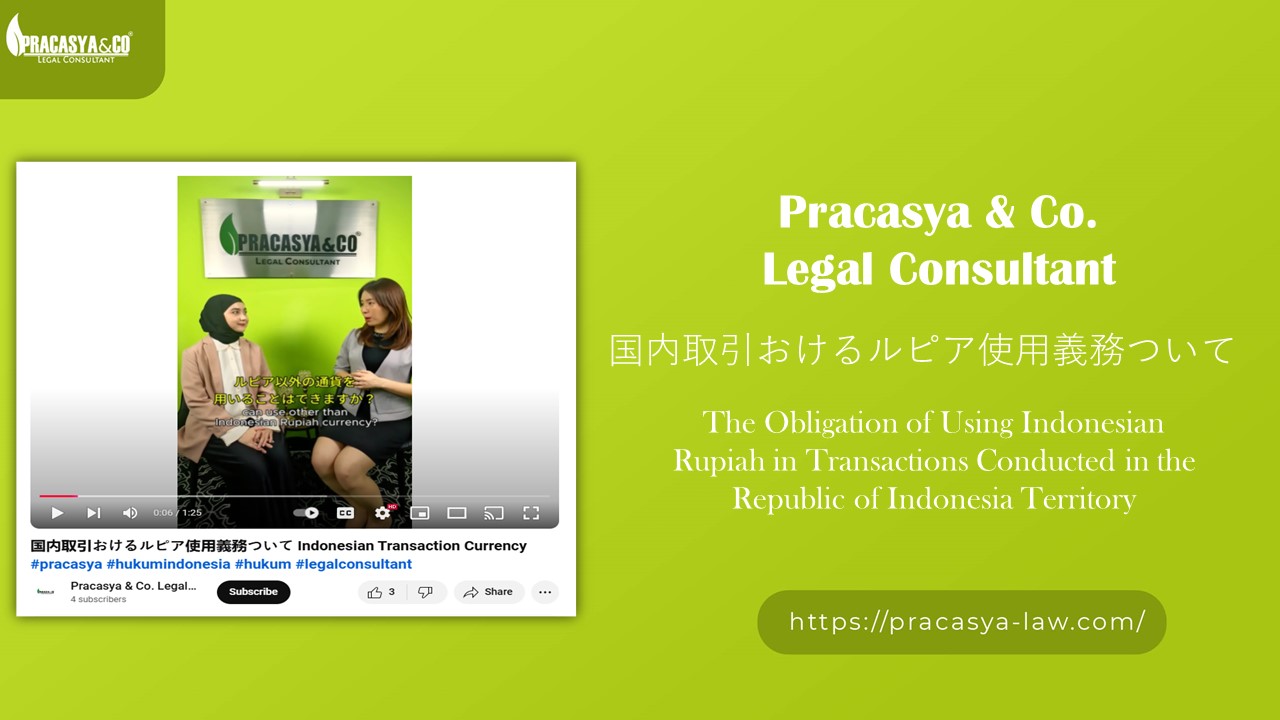DIANI PUTRI PRACASYA
All transactions conducted in the territory of the Republic of Indonesia are required to use Rupiah. This obligation applies to all parties, both individuals and corporations. This obligation is regulated in Bank Indonesia Regulation Number 17 of 2015 concerning the Obligation to Use Rupiah in the Territory of the Unitary State of the Republic of Indonesia. The purpose of requiring the use of Rupiah in transactions in the territory of the Republic of Indonesia is because Rupiah is a legal payment in the territory of the Republic of Indonesia and a symbol of the sovereignty of the Republic of Indonesia, and is also intended to support the achievement of stability in the value of the Rupiah.
Bank Indonesia explained that there are 3 (three) important principles related to the obligation to use Rupiah in the territory of the Republic of Indonesia, namely:
1. Territorial Principle
Every transaction carried out in the territory of the Republic of Indonesia must use Rupiah.
2. Residents and Non-Residents
This obligation applies to all parties who needs to make payment/transaction, both residents and non-residents, both individuals and corporations.
3. Cash and Non-Cash Transactions
This obligation to use Rupiah applies to both cash and non-cash transactions. Cash transactions include transactions that use paper money and/or coins as a payment instrument. Meanwhile, what is meant by non-cash transactions includes transactions that use non-cash payment tools and system.
However, the Government of the Republic of Indonesia also provides exceptions to transactions that are allowed not to use Rupiah. The obligation to use Rupiah does not apply to the following transactions:
1. Certain transactions in the context of implementing the state revenue and expenditure budget;
2. Receiving or giving grants from or to foreign countries;
3. International trade transactions;
4. Savings in banks in the form of foreign currency;
5. International financing transactions;
6. Business activities in foreign currency carried out by banks are based on laws that regulate banking and sharia banking;
7. Securities transactions issued by the Indonesian Government in foreign currency in the primary market and secondary market based on the laws that regulate government securities and state sharia securities; and
8. Other transactions in foreign currency carried out based on laws.
Bank Indonesia supervises the compliance of each party in carrying out the obligation to use Rupiah currency in the territory of the Republic of Indonesia, one form of supervision is that Bank Indonesia is authorized to request reports, information and/or data from each party related to the implementation of the obligation to use Rupiah currency in the territory of the Republic of Indonesia. For parties who violate the provisions of the obligation to use Rupiah currency, criminal sanctions may be imposed, referring to Article 33 paragraph (1) of Law No. 7 of 2011 concerning Currency, it is stipulated that:
“Any person who does not use Rupiah in:
a. any transaction that has a payment purpose;
b. settlement of other obligations that must be fulfilled with money; and/or
c. other financial transactions
as referred to in Article 21 paragraph (1) shall be punished with imprisonment for a maximum of 1 (one) year and a maximum fine of IDR 200,000,000.00 (two hundred million rupiah)."

